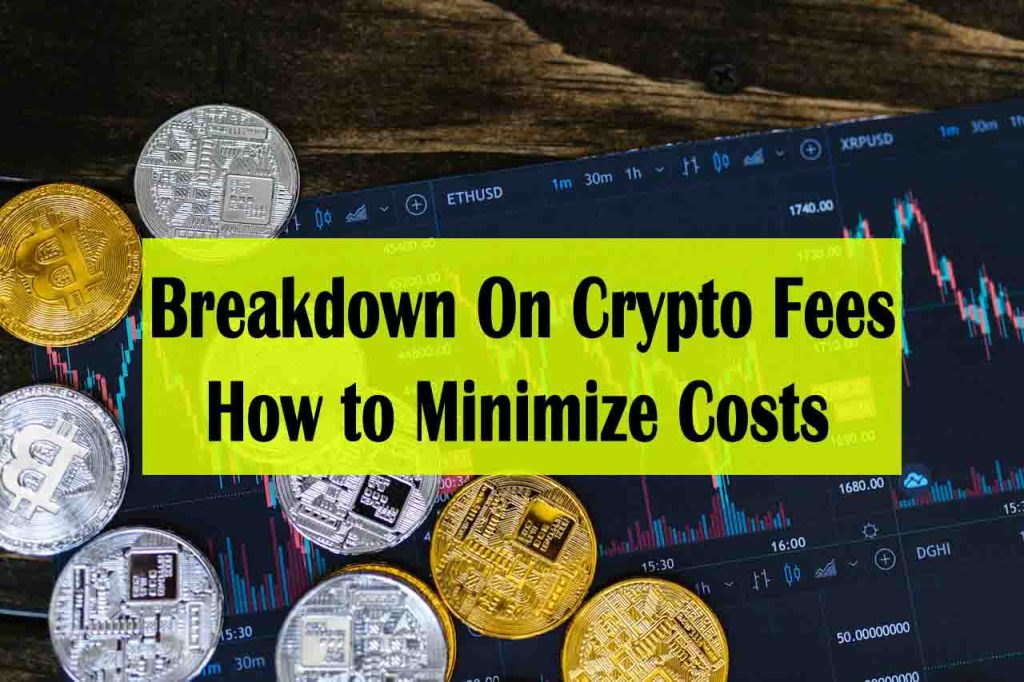Paying cryptocurrency fees to trade or exchange it is one of the charges associated with entering the cryptocurrency market. The cost of trading cryptocurrencies might differ significantly from one exchange to the next as well as from one cryptocurrency to another. The timing of deals might affect cost as well.
There are a few broad considerations to bear in mind, even if the specifics of how much each exchange costs to trade different kinds of cryptocurrencies will vary.

Breakdown on Crypto Fess
On a cryptocurrency exchange, an investor may carry out a wide range of transactions, each with a unique fee structure. If you trade cryptocurrencies, you should often check costs because they might fluctuate frequently and without prior warning. Cryptocurrency fees come in two varieties. Take a peek at each now.
Exchange Fees
A cryptocurrency exchange has to become a part of the financial flow in order to generate revenue. Most frequently, this entails charging fees for typical transactions, like:
• Trading
• Deposits when stored with digital wallets
• Withdrawals and liquidations
• Loans
Network Fees
A digital asset known as cryptocurrency is not yet under the authority of any regulatory body, including the government. Worldwide networks and computers host cryptocurrency, and at the moment, exchanges are conducted only between the buyer and the seller without the involvement of a third party.
However, since the transaction must be recorded, you must pay network fees to cover the costs of the resources required to validate and record your transaction on the open blockchain.
How Much Are Fees for Crypto?
Depending on whether you’re a maker (buyer) or taker, most cryptocurrency exchanges charge between 0% and 1.5% every deal (seller).
This implies that if you set aside $100 to invest in cryptocurrencies, the charge you’ll pay for that transaction might range in price from $0 to $1.5 on average. However, Coinbase charges up to 4.5%, so a transaction there may cost you $4.5 in fees.

How To Minimize Crypto Trading Fees
Fees have many different effects on a cryptocurrency investor’s wallet, not simply on the Bitcoin network. For instance, the typical transaction cost for Ethereum reached an all-time high of $196.68 on May 1. According to YCharts, fees have now reduced to $16.27 and are currently fluctuating between $0.50 and $1.70.
Your timing and technique for trades and other transactions truly important because costs can vary so greatly. Here are some pointers for reducing cryptocurrency costs.
• Use a marketplace that offers commission-free trading: Some exchange transactions charge takers costs even while creators pay reduced or no fees. Some exchanges also impose spread fees. Fees are often associated with advanced trading options.
• Make purchase with coins: Fees for the withdrawal and the corresponding deposit into your digital wallet are likely to apply when you convert bitcoin into fiat — government-backed — cash. It could be free to exchange using currencies. Think about employing this tactic to cut or get rid of your bitcoin costs.
• Consider your transaction amounts: A flat cost may be provided in some circumstances, but typically, the larger the transaction, the more you’ll pay.
• Choose your transaction types wisely: Some exchanges may charge you for deposits into your digital wallet, and there may be costs associated with converting cryptocurrencies to fiat money.
• Utilize promotions to minimize fees: By taking advantage of promotions, you may offset cryptocurrency costs and decrease their impact on your portfolio balance. Several cryptocurrency exchanges provide sign-up bonuses and other incentives that give you access to free bitcoin.
Final Thought
Investors who are interested in digital currency need to be aware of the risks associated with a constantly changing market. As a crypto trader, it is in your best advantage to maintain your understanding of fees up to date because you can potentially make your next investment decision at any given moment.
Have a plan in place for purchasing, trading, and keeping cryptocurrencies, and review it frequently because new developments are always taking place.


1 Comment
Pingback: Understanding the Dynamics of Cryptocurrency Exchanges